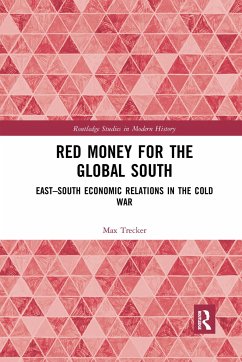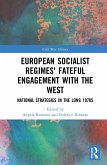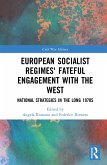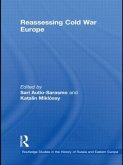Red Money for the Global South explores the relationship of the East with the "new" South after decolonization, with a particular focus on the economic motives of the Council for Mutual Economic Assistance (CMEA) and other parties that were all striving for mutual cooperation.
During the Cold War, the CMEA served as a forum for discussions on common policy initiatives inside the so-called "Eastern Bloc" and for international interactions. This text analyzes the economic relationship of the East with the "new" South through three main research questions. Firstly, what was the motivation for cooperation? Secondly, what insights can be derived from CMEA negotiations about intrabloc and East-South relations alike? And finally, which mutual dependencies between East and South developed over time?
The combination of analytical narrative and engagement with primary archival material from former CMEA states, and India as the most prestigious among the former European colonies, makes this text essential reading for students and instructors of Cold War history, Economic History, and international relations more generally.
During the Cold War, the CMEA served as a forum for discussions on common policy initiatives inside the so-called "Eastern Bloc" and for international interactions. This text analyzes the economic relationship of the East with the "new" South through three main research questions. Firstly, what was the motivation for cooperation? Secondly, what insights can be derived from CMEA negotiations about intrabloc and East-South relations alike? And finally, which mutual dependencies between East and South developed over time?
The combination of analytical narrative and engagement with primary archival material from former CMEA states, and India as the most prestigious among the former European colonies, makes this text essential reading for students and instructors of Cold War history, Economic History, and international relations more generally.
"The book looks at the motivation of communist and postcolonial elites for cooperation, the interplay of ideology and pragmatic economic policies on the ground, and questions to what extent these economic interactions differed from the colonially inflected capitalist trade relations. What makes this contribution stand out, however, is a crisscrossed view of CMEA from various national archives amounting to a genuinely transnational perspective on the planned economies in Eastern Europe.
The book represents an excellent overview of East-South economic exchange during the Cold War. Red Money for the Global South is an important milestone in research heading beyond single case studies of bilateral relations toward a more comprehensive, interconnected transnational study of "socialist globalization."
-Goran Music, H-Soz-Kult
The book represents an excellent overview of East-South economic exchange during the Cold War. Red Money for the Global South is an important milestone in research heading beyond single case studies of bilateral relations toward a more comprehensive, interconnected transnational study of "socialist globalization."
-Goran Music, H-Soz-Kult








